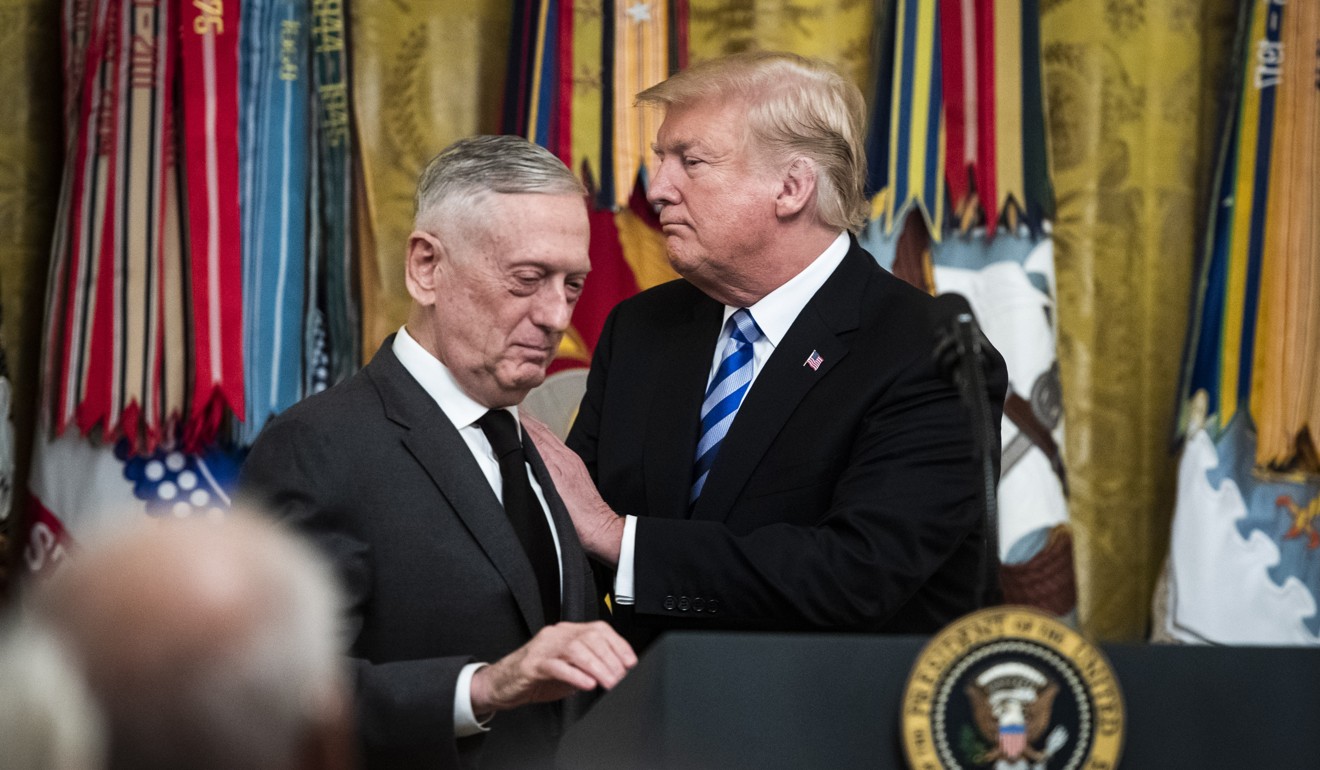
In a post-James-Mattis South China Sea, can the next US defence chief do what needs to be done to prevent war?
- Mark J. Valencia says the new US defence secretary will have to understand, as James Mattis did, the balance required for the US to stay in the Indo-Pacific as a leading strategic power but also prevent conflict with China
The US-China tensions in the South China Sea spring from a deeper contest over the future of the Asian regional order and the two countries’ roles in it. To put it simply, the US wants to remain the leading strategic power in Asia, and China wants to replace it.
President Xi Jinping has declared: “No one is in a position to dictate to the Chinese people what should or should not be done.” With its burgeoning wealth and power, China is unlikely to be intimidated and begin to act more cautiously in the region.
Indeed, it is more likely to meet threats and provocative actions with its own. Nationalists in the government, in the Chinese navy, and among netizens might push for responses to provocations. More military-to-military incidents are likely, and past international episodes might seem minor by comparison.
Trump seems wary of expending more American blood and money on defending allies like Japan, the Philippines and Taiwan, especially if they provoke China but expect the US to back them up.
This could hamper any appointee’s ability to flex military muscles in Asia. Moreover, with Trump’s sudden, unilateral withdrawal of US troops from Syria, friends and allies in Southeast Asia may realise that they, too, are probably on their own and that they should act accordingly.

Under Mattis, the US stepped up the frequency of its provocative “freedom of navigation operations”, challenging China’s territorial claims.
However, early in his tenure, Mattis did try to assure China by saying: “At this time, we do not see any need for dramatic military moves at all.”
He appears to have consolidated control over security matters, while Trump is clearly distracted. Whether the new defence secretary will have the clout and connections to counterbalance bad decisions by Trump or Bolton on South China Sea issues is an open question.
Will the US clarify its interpretation of its obligation to support the Philippines if it is attacked in the Spratlys? If it does so in the positive – as the Philippines is demanding and bellicose US pundits are recommending – the Philippines could, with intent or through miscalculation, draw the US into a military conflict with China.
In December, the Pentagon’s top Asia official urged Australia and other allies to boost their military presence in the South China Sea.
And will the US continue or step up intelligence, surveillance and reconnaissance missions despite China’s increasingly shrill protests?
Hopefully, whoever is nominated and confirmed as the next US secretary of defence will understand – as Mattis apparently did – that overreaction can produce war just as easily as policy failure.
More importantly, he or she should understand that though the purpose of a nation’s military forces in the past was to win wars, it must now be to prevent them. This is especially true when nuclear powers are involved.
Mark J. Valencia is an adjunct senior scholar at the National Institute for South China Sea Studies, Haikou, China

